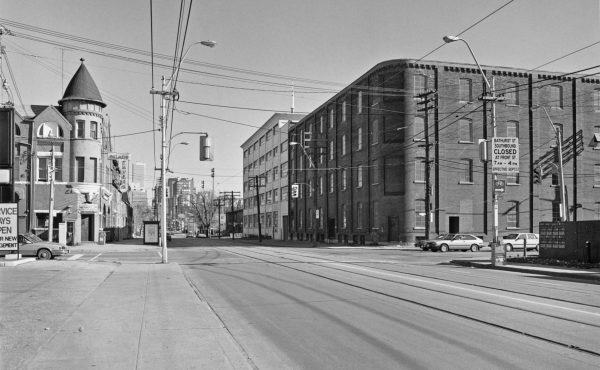Whether it is the scouring of Ontario Place or the war against bikers, it seems the Ford government is getting away with just about everything it sets out to do, and that is no coincidence.
In 2023, the Ontario government and the City of Toronto trumpeted an intergovernmental effort, dubbed the New Deal, and the enabling legislation, Bill 154, which received Royal Assent just over a year ago. This deal saw the uploading of the Gardiner Expressway and the Don Valley Parkway to provincial ownership and responsibility. It also guaranteed funding for pressing Toronto issues such as housing, shelters, public transportation, and infrastructure.
The deal seemed very promising, but it is not as altruistic as it initially seemed.
The New Deal secured some of Premier Doug Ford’s most valuable leeway which his administration has taken full advantage of. It is important to note that Bill 154 moved through the legislature in the span of three days, without a committee review or public consultation.
Ontario Place
The most infamous cost associated with the New Deal was the city’s loss of standing in relation to the redevelopment of Ontario Place. The city lost the right to prohibit or limit noise emitted from the Ontario Place site. In fact, an entire section of the bill, titled “Limitations on City of Toronto Powers,” gives the province the power to make regulations or impose limits on the city authority should it become an obstacle to the construction of Ford’s spa project.
The bill also gave the Minister of Infrastructure power to exercise re-zoning and subdivision control under the Planning Act for the benefit of progressing the Ontario Place project. This is the very same municipal zoning order power which landed the administration in controversy in 2023.
During the public consultation held in September, 2023, 95% of respondents disagreed or strongly disagreed with the proposed Ontario Place redesign. This disapproval rate from the public meant nothing, however, as the New Deal forced the sale of city owned lands required for the project, as well as council approvals to break ground as of December 31, 2023.
Queen’s Park’s show of disregard for a democratic process does not end there. The New Deal, and Bill 154, explicitly exempted the Ontario Place project form the Ontario Heritage Act, City of Toronto bylaws, the Environmental Bill of Rights and the Environmental Protection Act.
On top of these many exemptions, the bill protects the provincial government from legal action in the case of any damages: “No costs, compensation or damages, including loss of revenues or loss of profit, are owing or payable to any persons and no remedy, […] any equitable remedy under any statute, is available to person in connection [the involved provincial agencies].” The bill further shields itself in retrospect stating that the above applies regardless of whether the cause of action arose before, on or after the day this subsection came into force. This level of legal shielding is unprecedented and alarming.
Environmental Assessment
The Canadian government defines an environmental assessment as “a process to identify, predict and evaluate the potential environmental effects of a proposed project. This process happens before decisions about a proposed project are made.”
The New Deal provided the Ford government with unprecedented exemptions from the Environmental Assessment Act. These essentially removed the requirement to conduct an environmental assessment on the Ontario Place project, enabling the provincial government to break ground on the project regardless of its environmental impact.
The New Deal created other dangerous precedents which we can now expect to emerge every time Ford wants to ram through a project. This section of the New Deal was practically begging the federal government to step in, however prior supreme court rulings stripped the federal government of its ability to intervene. This emboldened Ford and provided the provincial government with the cover needed to enact such dangerous and over-reaching legislature.
Between the New Deal and the recent supreme court rulings, we can expect to see our Tories and industry emboldened to further undermine environmental protections. In fact, we’re already seeing this happen with the very same exemptions being echoed again in the more recent bill 212 in relation to the highway 413 project and the legal shielding in relation to new bike lane policy.
Public Transportation
The New Deal provides Toronto with the breathing room and roughly a billion dollars in funding necessary to update and enhance its public transport network. We are already seeing the benefits, e.g., in the federal government’s recent announcement to help fund new Line 2 subway cars, a much-needed upgrade at the end of their life. The downside is that the deal strips Toronto and the TTC of any independent capital investment ability by routing all new projects through Metrolinx, a provincial agency. Toronto has committed to “accelerate and streamline city-led approvals to advance planning and construction […] of provincial priority projects.” as well as a “commitment to expeditiously provide Metrolinx and the province with the necessary properties and easements to advance construction of Eglinton Crossway West Extension.”
Whether it is land, rights-of-way, approvals, or due process, Toronto and the TTC must yield to Metrolinx. As laid out according to the terms of the New Deal plan delivered on the province’s website: “City commitment to get traffic moving and meaningfully address and reduce automotive gridlock across the City by working with the Province and Metrolinx to manage construction schedules of infrastructure projects.”
Bottom Line
With this deal, Ford has done what he does best: create distractions while funneling executive power to his government. When Ford needs precedent, he simply sets it himself; when he wants to have a say, he simply ignores those speaking. This New Deal promised that Toronto would have the freedom to invest into the types of transit which best fit a metropolitan core. Instead, the province paved the way to ram through whatever projects it sees fit, regardless of public opinion and environmental law.
It is not only a short-sited deal which undercuts Toronto’s independence, but it has set dangerous legal precedent which undermines environmental precautions or action in any meaningful way.
Michel Nayrouz is earning his Master’s in Environmental Science & Management from Toronto Metropolitan University and is interested in the intersection between environmental policy and urban design





2 comments
This is a disgrace…
Is there anything, we the public, can do to push back?
A well written and very informing read. I was not aware of the results of that public consultation. 95% disagreed…wow. Excellent article.